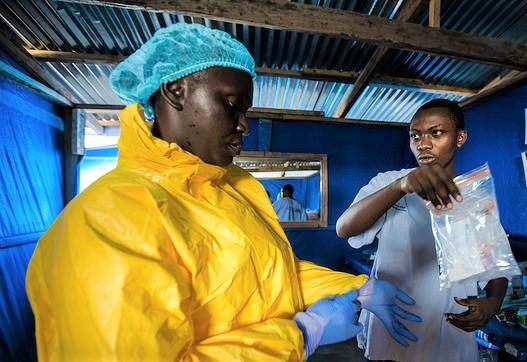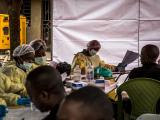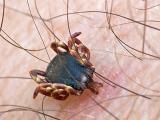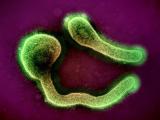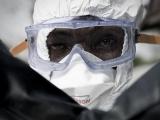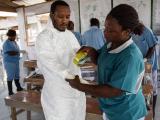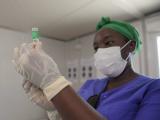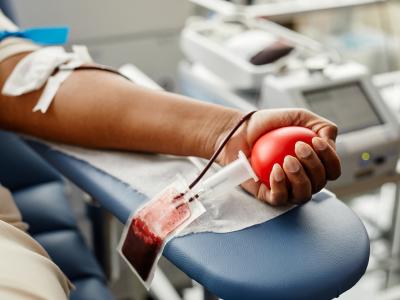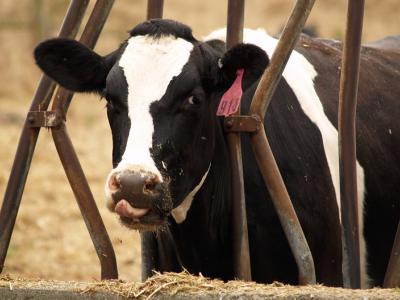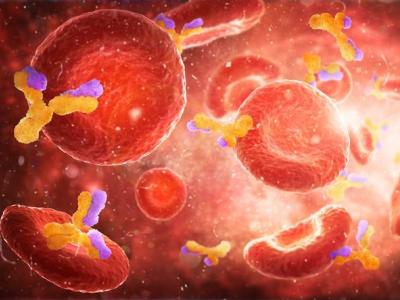In recent days the Democratic Republic of Congo (DRC) reported a few more suspected Ebola cases, and with lab tests ruling out some earlier cases, the outbreak total grew to 53 cases.
Also, the number of people who received the experimental VSV-EBOV vaccine rose steadily, and the DRC's health minister said over the weekend that all people targeted for immunization in the provincial capital of Mbandaka have now been vaccinated, which includes health workers, contacts of confirmed cases, and contacts of contacts.
As of yesterday, 1,112 people have been vaccinated in outbreak areas, including 567 in Mbandaka, 269 in Bikoro, and 276 in Iboko.
In a statement yesterday, the health ministry said that, of 53 cases, 37 are confirmed, 13 are probable, and 3 are suspected. The most recent suspect case-patient was reported from Iboko, one of the outbreak's two remote hot spots. No new deaths were reported, keeping the total at 25.
Over the weekend, health officials said nine patients with confirmed infections have recovered and been discharged from Ebola treatment centers.
Outbreak still active; response pace builds
Meanwhile, the World Health Organization (WHO) said in a Jun 1 situation report that the outbreak remains active, with the most recent lab-confirmed case reported in Iboko.
It said the response continues to ramp up on many fronts. For example, Early Warning, Alert, and Response (EWAR) systems and field data collection tools have been deployed to Mbandaka and are being established in Iboko. Also, health officials mapped out 115 entry points at high-risk transmission areas, including airports, river ports, bus stations, and markets.
A mobile lab has been deployed to Iboko, and several social mobiliziation efforts are under way, such as an awareness campaign that targeted traditional healers and birth attendants with Ebola information and gloves.
The DRC's health ministry said in a Jun 2 update that it sent 40 new motorcycles to help surveillance workers with their field investigations, and yesterday it noted that it and the WHO have trained 50 community relays, responsible for educating members of the public, at two health zones in Kinshasa that cover ports or airports that receive travelers from affected Equateur province.
So far, countries and organizations have pledged $25.7 million for the WHO's response, for which it said $27.3 million is needed. Germany recently contributed €5 million ($5.85 million), which will help replenish the WHO's contingency fund for emergencies, from which it has already drawn $4 million for response efforts in the DRC.
White House details response
In a related development, the Trump Administration said on Jun 1 that it is taking swift actions to help battle the Ebola outbreak in the DRC. It said the National Security Council (NSC) is closely collaborating with federal departments to coordinate the US response.
White House officials added that NSC staff are regularly meeting with departments and agencies to prioritize actions, share information on outbreak developments, and coordinate response needs.
The statement said Andrea Hall and Luciana Borio, MD, are overseeing US response efforts for the NSC. Questions surrounding leadership on global health issues at the NSC have been swirling following the elimination the office, which was led by Rear Admiral Tim Ziemer, which many public health experts have said was one of the most effective leaders in public health.
Also, the Trump administration's support for the DRC's Ebola outbreak comes amid mixed signals on global public health, which include a rescission proposal from President Trump that would cut $252 million in previously approved money for West Africa's outbreak and for efforts to build capacity to respond to similar outbreaks. The administration, however, submitted an increased budget request for global health security programs for the 2019 fiscal year.
In the White House statement, officials noted that the United States Agency for International Development has contributed up to $8 million, including $5 million from the international health emergency reserve fund. The administration commended the DRC for allocating its own funds and several nations for making significant contributions.
See also:
Jun 3 DRC health ministry statement
Jun 2 DRC health ministry statement
Jun 2 WHO situation report
Jun 1 White House statement
